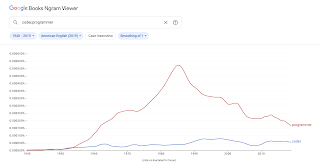At Dan Russell’s SearchResearch blog on March 3, 2023 there is a post titled PSA: Read Clive Thompson’s article about how he does research. That article is at Medium on February 27, 2023 and is titled How I Research a New Subject. Clive discusses seven topics:
1] Start by getting a 50,000-foot-in-the-air view
2] Go deeper with scholarly and industry material
3] Take tons of notes
4] Look for experts and people with authority
5] Follow up on ‘everything’
6] Persist, persist, persist
7] Seek ‘saturation’
His third paragraph under #1 says:
“So I start by doing what I think of as ‘50,000-foot-in-the-air’ reading. I’ll hunt down a couple dozen good articles on the subject from newspapers, magazines or white papers that are aimed at laypeople, and read them all. This stuff isn’t deep, but it’s broad. It orients me to the major concepts, jargon, controversies, and personalities in a field. Wikipedia can often be surprisingly good for this purpose.”
Clive doesn’t say where he finds those good newspaper and magazine articles. It might just be out in the open on the web. On February 23, 2020 I blogged about Finding speech topics and doing research. In that post I discussed an example of an obscure but useful magazine called Vital Speeches of the Day, and described how it could be read on the EBSCOhost database that can be accessed from the web site for my friendly, local public library.
There is a 2019 book by Clive titled Coders: The Making of a New Tribe and the Remaking of the World. That title points out a problem with getting started on a new subject - terminology can shift over time. When you look at Google's Ngram Viewer, as shown above, you will see that coders is a newer term. I learned about programming computers back in the 1960s at an Explorer post in Pittsburgh. Back then we called ourselves programmers, not coders.
In my 2020 blog post I referred to another post from February 4, 2019 titled Reliable places to find information for your speeches. In that post I suggested starting by interviewing a reference librarian at your friendly local public library. Ask him or her both about books, and which of their databases you can best use. You might get referred to a book in the For Dummies or Complete Idiot’s Guide to series. If you asked a librarian about Clive’s book, then they might look up Coders as a keyword in their Online Public Access Catalog (OPAC). They could tell you to find Coders and similar books indexed by subject under Computer Programmers.
Under #4 he mentions that since he’s a reporter he will keep track of the experts (and their categories), since they will be people he’ll call to interview. An older blog post of mine on July 8, 2010 is titled Web search: 10 strategies for various occasions. Number 8 is to Find Someone Who Cares. Look for an Expert on the topic, and then contact him or her by email, phone, or in person. When I looked at PubMed Central, I found an article by Megan Hienicke et al in the March 2022 issue of Behavior Analysis in Practice titled Improving behavior analysts’ public speaking: recommendations from expert interviews.
On April 25, 2021 I blogged about The Joy of Search, a 2019 book by Daniel M. Russell, is an extremely useful guide about how to do research both online and offline.
The silhouette of a man’s head came from Openclipart.














